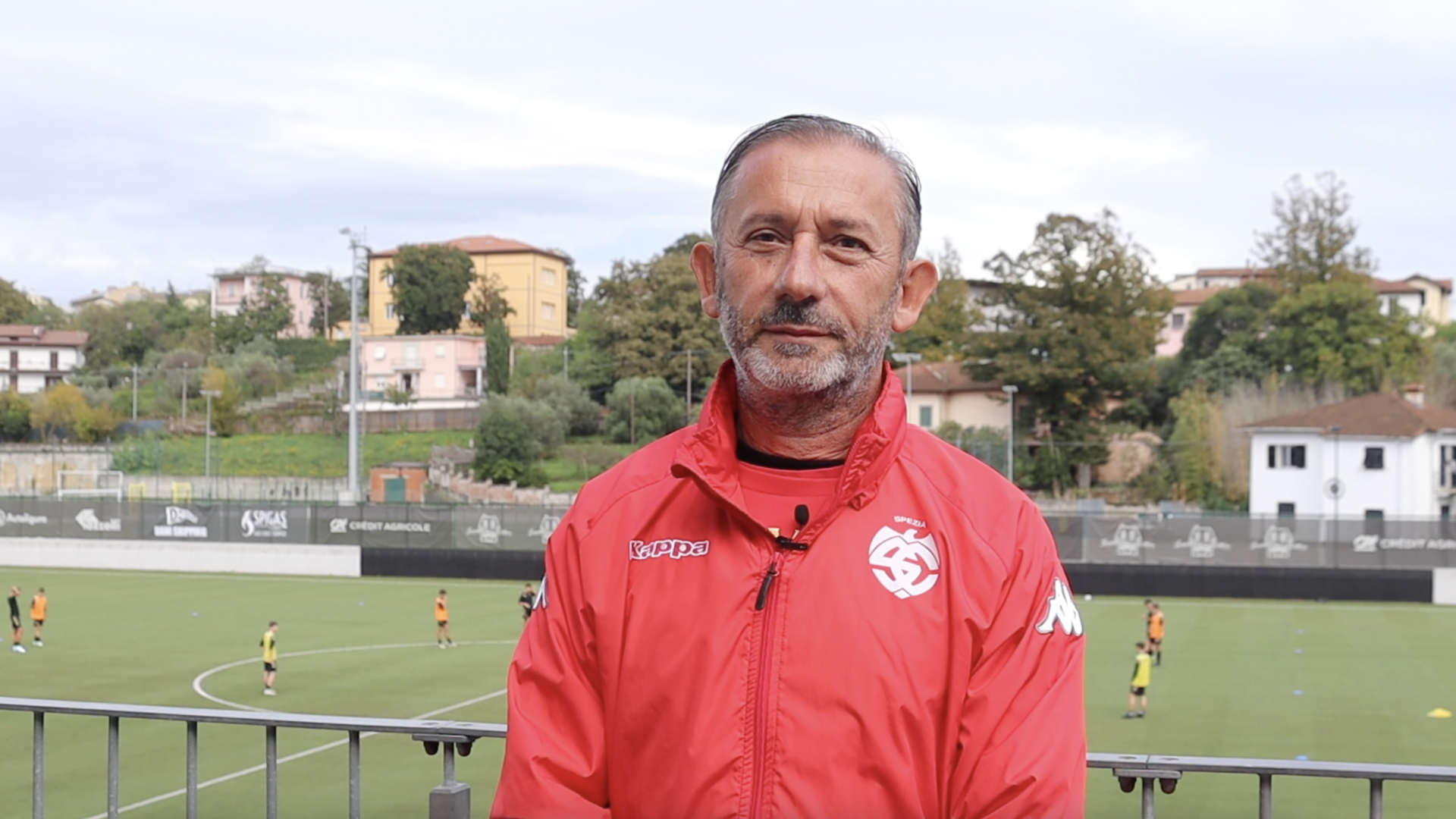Interview with Pietro Napoletano, technical coordinator of the national youth levels for the Aquilotti youth sector. Here are his words: "The role of technical coordinator of the national levels is a fascinating one, full of responsibility, which was entrusted to me this summer, and I am deeply proud of it. The club has asked me to focus on developing the players and structuring the methodology for the youth sector. We analyzed the current status and developed a plan in two phases: the first focusing on the players' development, and the second on the athletes' training. The development phase applies to the basic activities through to the Under-16s, while the second phase, aimed at the Under-17s and Primavera, is geared towards preparing the players for a potential call-up by Coach D’Angelo.
We began in August, so it's still too early to assess these first few months of work. At the moment, all I can say is that this training program has been shared with the coaches to ensure coordinated activities, monitor progress and intervene if necessary. My advantage is that I know the coaches well, and I can confidently say that they are all highly skilled and very cooperative, which makes it easier for me to share both past experiences and new ideas with them.
As for our objectives, we can say that while results are central to the national teams, we never lose sight of training the players to grow and improve from a technical and tactical perspective.
The goal of our youth sector, as has been clear for many years now, does not prioritize results—though they remain important—but rather focuses on the development of our young players, even at the expense of winning. We have not been asked to win or aim for high-ranking results, but to implement a developmental path that helps young athletes grow technically and tactically. The principles of individual tactics have been given priority, as well as understanding the game in terms of space and time.
We focus on the personal growth of each player but, of course, the human and educational aspects remain fundamental. We have a great relationship with the parents; they support us and we support them in the educational and developmental process of the players. For my part, another key theme we emphasize is the sense of belonging to the club. I want this to be embraced by everyone—the players, the children, the parents, and especially us coaches and staff members.
I've been in football for many years, and over time I've noticed significant differences between the players of the past and those of today. The differences are obvious. In the past, there was much more exposure to the streets, and kids were more enterprising. They came to the field better prepared because the streets played a key role, especially in stimulating cognitive development, as well as in interacting with older players, which helped develop physical contact skills. Our primary goal now is to recreate that ‘street’ environment on the field during training sessions. We need to replicate the dynamics of street football and implement the necessary tools on the pitch to enhance the players' abilities.
I’ve had the chance to observe and study the methodologies of other professional clubs, not only in Italy, and I’ve realized that our youth sector is working well and is up-to-date. Many of our players have come through the youth ranks and are now stable members of various first teams. For example, our own first team includes 4-5 players who were in the Primavera team last year. Others are playing in Serie A, Serie B, Serie C, or are on loan in other leagues. So, we can say that the work we’ve undertaken is truly satisfying. We must continue and improve because what we’ve done so far is not enough. Times are changing quickly, and we need to keep up and continuously improve—both the players and us coaches, who must never stop developing ourselves".









Cookie per Social Networks
Si tratta dei cookie che consentono di condividere anche con altri utenti i contenuti del sito che si sta visitando. Sono i cookie tipicamente utilizzati per attivare le funzioni “Mi piace” o “Segui” dei Social Network quali Facebook e Twitter, solo per citarne alcuni. Queste funzioni consentono ai Social Network di identificare i propri utenti e raccogliere informazioni anche mentre navigano su altri siti.